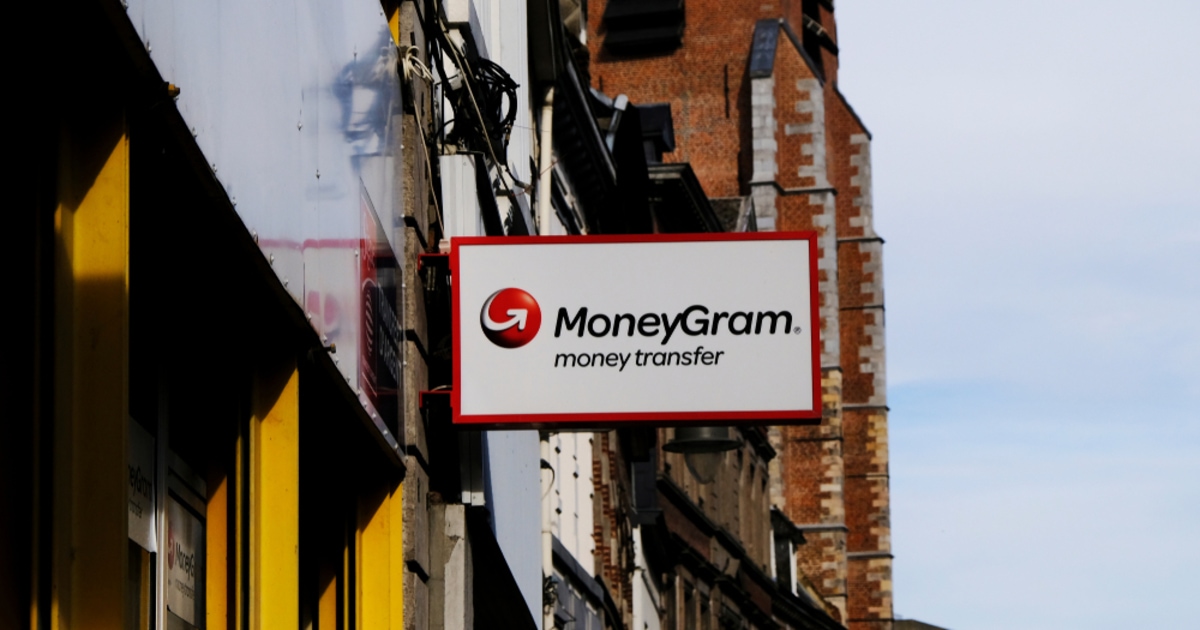Moneygram Partners with Stellar Blockchain Network to Enable Instant Crypto-To-Fiat Settlements Using USDC Stablecoin
Nicholas Otieno Oct 07, 2021 09:30
MoneyGram has partnered with Stellar Development Foundation to enable customers to make settlements in different fiat currencies including cryptocurrencies using USDC stablecoin.

MoneyGram International Inc has partnered with the Stellar blockchain network to enable instant money transfers using Circle’s USDC stablecoin.

Traditional cross-border payments giant MoneyGram announced on Wednesday, October 6, that it is working with the Stellar Development Foundation to launch the new service.
Denelle Dixon, CEO and Executive Director of the Stellar Development Foundation, talked about the development and said that MoneyGram’s network would integrate with the Stellar blockchain to enable cash payments and funding in multiple currencies such as Japanese yen, US dollar, and others, using USD coin (USDC) stablecoin governed by Circle.
Dixon mentioned that cash users would be able to access crypto services that have been out of reach in the past.
“Working with MoneyGram allows end consumers to have on- and off-ramps everywhere that MoneyGram’s vast agent network supports this. So, this is just transformational in terms of being able to exchange crypto for fiat and fiat for crypto,”
The firms have scheduled to launch the services in select markets by the end of this year, with further international rollout expected to happen in 2022.
Meanwhile, Alex Holmes, Chairman and CEO of MoneyGram International, also talked about the partnership and stated: “We’re enabling consumers to bridge crypto assets and fiat currency.”
More than MoneyGram’s 150 million customers will be able to convert cash in and out using USDC stablecoin for instant ATMs or bank facilities at MoneyGram locations.
While several banks have been wary of getting hands-on with cryptocurrencies, United Texas Bank will facilitate settlement between MoneyGram and Circle.
“Texas has a fairly proactive stance on crypto, and the governor has made a few comments. United Texas Bank is an established bank here and very focused on the opportunities in the crypto space. Not every bank is willing to step into the crypto world, and I think it says a lot about how progressive that bank is trying to be,” Holmes noted.
The partnership is a blow to Ripple, the crypto payments network, whose longstanding relationship with MoneyGram ended after the US SEC filed a lawsuit against Ripple in December 2020, stating that the company violated federal securities laws.
Holmes stated that the collaboration with Stellar is completely a different relationship from the partnership that MoneyGram had with Ripple. Leaving out the question of whether Ripple’s cryptocurrency XRP is a security or not in the perspective of law, he said that the vision that MoneyGram and Ripple were working on had certain limitations.
Holmes revealed the challenges that Moneygram faced during its partnership with Ripple. He identified the first challenge involved MoneyGram trying to create an FX market in a different world, and it really required a lot more time to bring that to life and make it work. Holmes mentioned the other challenge – MoneyGram was trading XRP, which, unfortunately, became so volatile because of the legal issues facing the parent company Ripple Labs.
Ripple’s SEC Lawsuit Impacting Crypto Sector
The bad blood between the US SEC and Ripple started in December 2020 when the SEC filed a lawsuit claiming that Ripple Labs had violated securities laws by failing to register its XRP cryptocurrency as a security.
During that time, Ripple used its XRP cryptocurrency as a vehicle to finance its core business of seamless cross-border transactions for financial institutions and had been doing so for seven years since it created the cryptocurrency in 2013.
The lawsuit has adversely affected Ripple and created more confusion to the already complex regulatory discussions over whether crypto-assets should be regarded as commodities or securities or something else.
If cryptocurrencies are securities, as defined by court precedent, then they must be regulated and approved by the SEC, which demands disclosures from various crypto firms.
However, Ripple maintains that XRP is not a security and therefore does not need approval from the SEC. Ripple also argued that the SEC currently allows other crypto tokens like Ethereum and Bitcoin to be traded like commodities and therefore not required to register as security.
However, the SEC argues that RiRipple’sase is different because the firm has been actively using XRP to fund its core business and essentially represents an investment in the company itself. The regulator, therefore, considers XRP as security and not a commodity and therefore falls under the SESEC’surisdiction under court precedent known as the Howey Test.
Image source: Shutterstock.jpg)